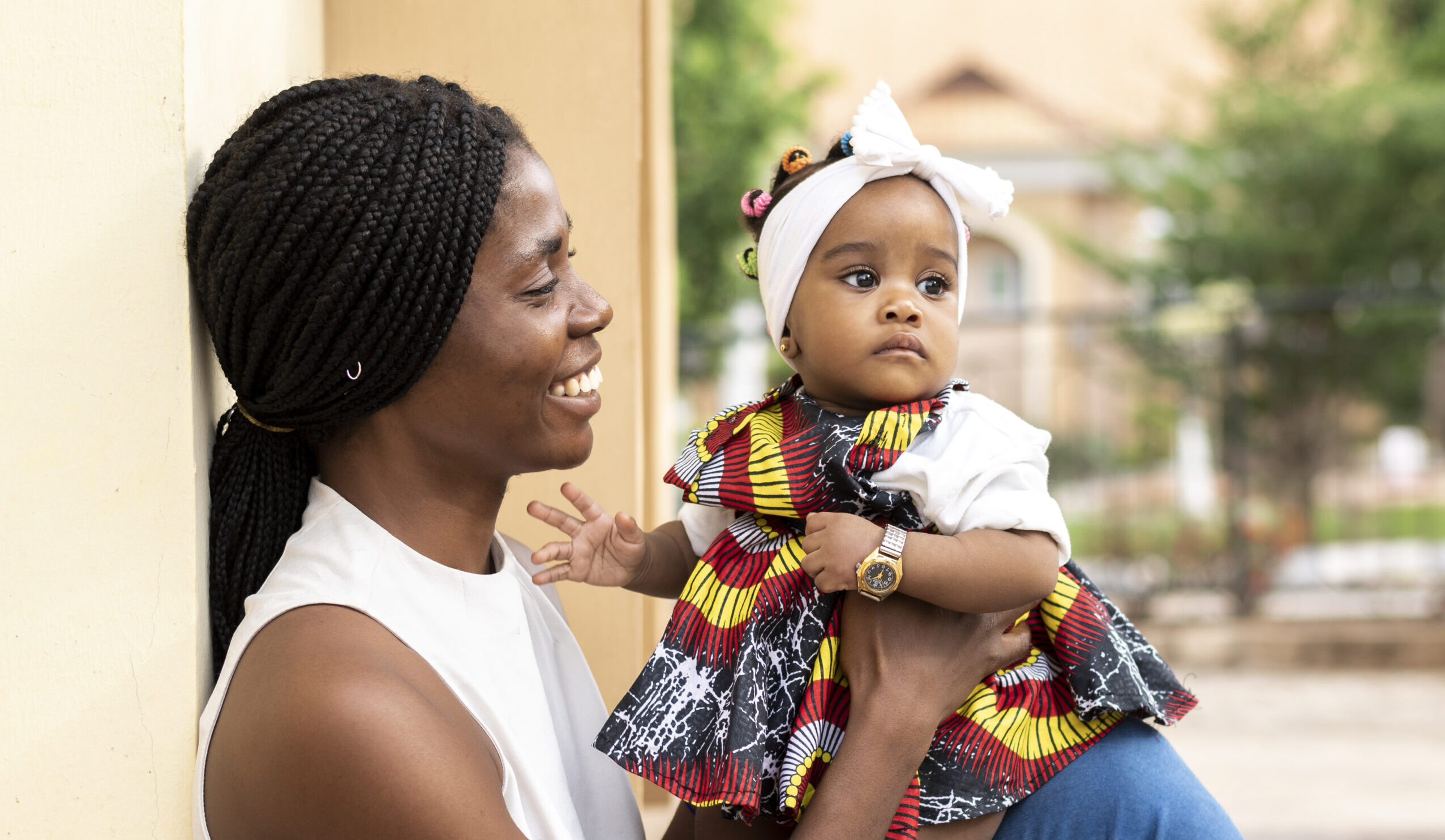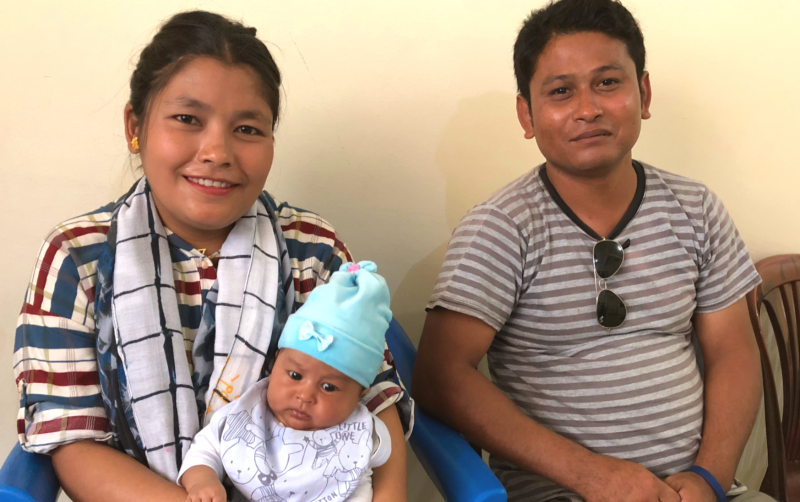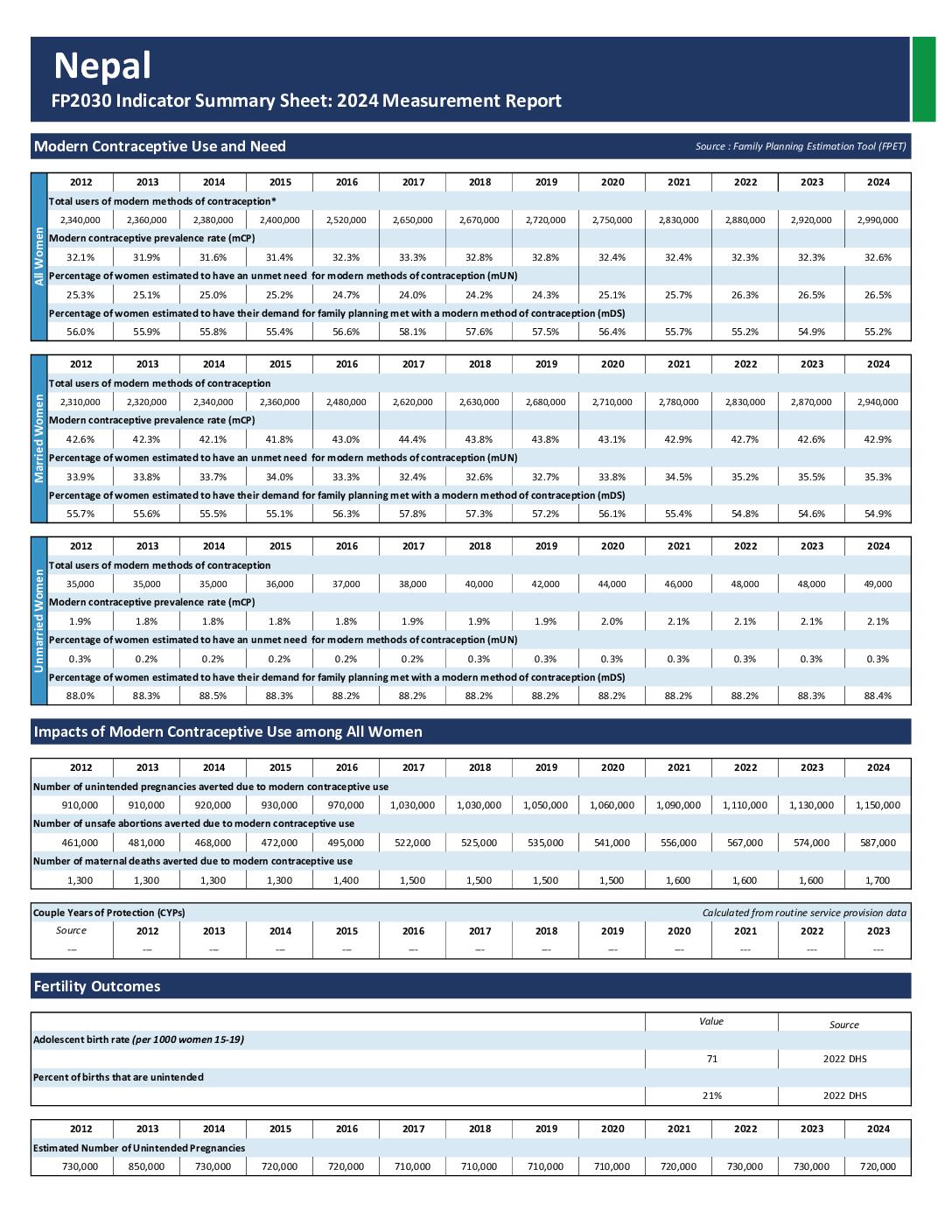
Government Partner
Nepal
Previous
The Netherlands
Next
Namibia
Nepal has committed to reaching a modern contraceptive prevalence rate (mCPR) of 70% by 2030, up from 48% in 2016, and has set a target of reducing unmet needs for family planning to 10% or less.
Nepal has implemented a range of family planning initiatives, including increasing access to and availability of contraceptives, improving the quality of family planning services, and expanding outreach to underserved populations. The government has also worked to strengthen the capacity of health workers and improve the supply chain for contraceptives.
Commitments made to:
Data in 2024
The data displayed on this page is courtesy of the Track20 Project. Implemented by Avenir Health, Track20 monitors progress towards achieving the goals of the global FP2020 initiative and new FP2030 partnership.

About Family Welfare Division, Department of Health Services, Nepal
Family welfare Division (FWD) is responsible to implement reproductive health and population related activities. These activities aim to reduce maternal and neonatal mortality and morbidity so as to improve health status and quality of life of population with special focus on poor, marginalized and vulnerable population.


Become an FP2030 Partner













